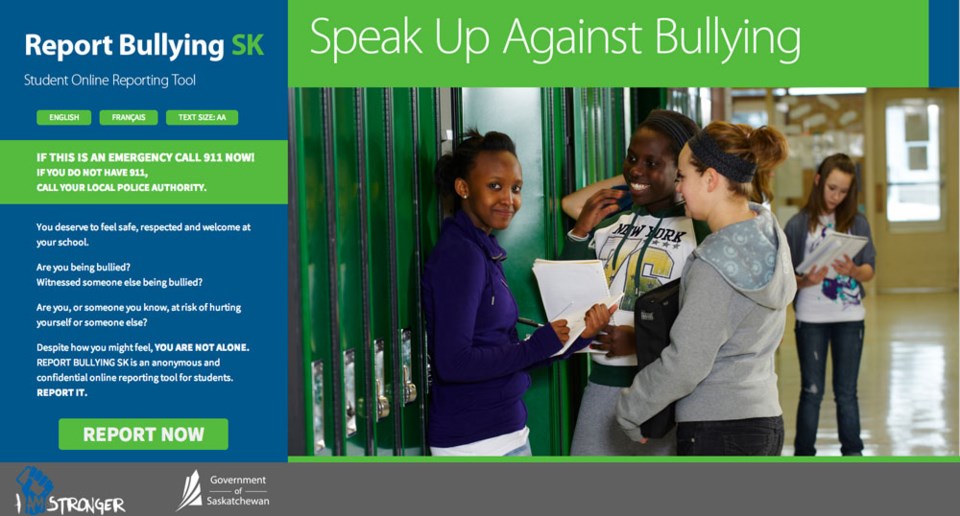By Alex Coop
[email protected]
A new anonymous, online anti-bullying reporting tool might help battle the prevalent bullying children face today, but its effectiveness, especially against cyberbullying, remains to be proven.
Following Saskatchewan's action plan to address bullying and cyberbullying, which was established Nov. 2013, the Ministry of Education has checked off one of its initial goals by partnering with SaskTel and developing an online reporting tool. Named the I Am Stronger initiative, it allows anyone to access their website, and use the new reporting tool to anonymously submit a report. It's available 24/7, 365 days a year, and according to the Ministry of Education, a mobile application will be available later this fall.
Envision's Children Exposed to Violence Program counsellor Allyson Fisher, said the new online app could potentially be implemented into their own services.
"It's definitely something that I can foresee using myself," she said, noting the other tools victims can turn to, like the Kids Help Phone line. "This would be another resource for them."
Fisher stressed the importance of having a face-to-face conversation with counsellors and other support systems, and hopes the process of helping victims through the new app includes a step that points victims in the direction of those options.
"I would hope with the app, that encouragement in seeking some other help will come as well," she said.
Const. Braden Lonsberry, school resource officer for the Estevan Police Services, said he hopes the new system won't be abused by people submitting false reports, and is unsure how well authorities can follow up on certain cases, since reports are filed anonymously, and can often leave out important information.
"I'd still rather investigate a false report, than not investigate a situation that needs to be looked into," he said.
As the tools to assist victims of bullying shift over to an electronic platform, so have the methods of bullying itself, and Lonsberry said 70 per cent of the reports he comes across are related to cyber-violence.
"When I was a kid, you see a bully from nine to three-thirty, then when you went home you didn't have to worry about it. Now, some kids can't really escape it, it's 24/7 for them," he said.
A big reason cases of cyber-bullying are rising, Fisher said, has to do with the fact that oppressors are able to largely remain anonymous and distance themselves from the situation, believing they're less likely to get in trouble.
"If they hit a kid at school they get in trouble, but if they send a nasty text message, they're less likely to get caught. It creates a big danger and it's why we see this big cyberbullying epidemic happening," she said.
Envision's Cyberviolence project, which was funded by Status of Women Canada, will focus on preventing and eliminating cyberviolence among girls and young women in southeast Saskatchewan. By building partnerships with the communities and keeping an ear to the ground, the project hopes to develop support services to combat cyberbullying.
"Youth are really into texting right now, and it's the way they feel most comfortable communicating," said Juli Dzuba, co-ordinator for the project. "I think the new app will help victims open up more."
According to Envision's website, only one out of every 10 victims will inform a parent or trusted adult of their abuse.
"Sometimes they're not ready to open up about the situation, and they're afraid of what's going to happen to them if somebody finds out they told someone about the bullying," explained Dzuba.
Cyberbullying is a serious issue that has left some of the children who speak with her hating school, said Fisher.
"It's abuse, it causes damage to their self-esteem and depression," she said. "All of us as adults come from a different generation and need to inform ourselves of the reality of what's happening. It's not just kids texting, there's so much more that's going on."




